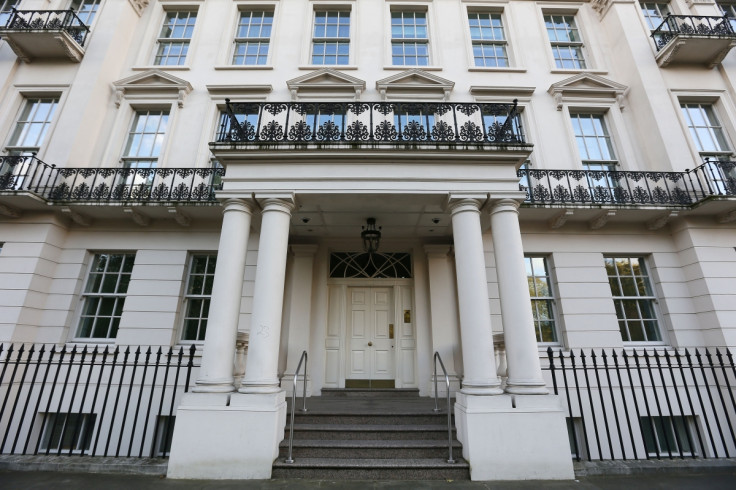Wealth inequality: Why the 0.1% is getting richer and how to stop it

If you wanted to be sheltered from the bangs and bumps of the economic slowdown that followed the financial crisis, it was simple. You just had to be really, really rich.
Because the wealth of wealthiest has grown, not shrunk, despite the global financial turmoil of recent years. And they are set to get even wealthier as the economy slowly heals.
According to a report by the charity Oxfam, using data from the investment bank Credit Suisse, the world's richest 1% of adults will account for half of all wealth – overtaking the other 99% – by 2016.
But even 1% is a surprisingly broad category in the scheme of the world – it is the ultra-rich 0.1% of billionaires where much of the wealth is concentrated. For example, to get into the 1% as Oxfam defines it, you need net wealth (assets – debt) of $798,000 (£526,332, €686,341). To get into the top 10% this needs to be just $77,000.
In the US alone, the top 0.1% owned 22% of all the wealth in the country during 2012, according to a 2014 study by the National Bureau of Economic Research, up from 7% in 1978. That 0.1% consists of just 160,000 households with net assets above $20m.
The wealth of those right at the top has been pushed up by a resurgence in equities – stocks and shares – and the ever-inflating property markets in places like London and Hong Kong.
And the wealthiest don't just own the lion's share of these high-yield assets, they also keep their wealth offshore where tax authorities can't get hold of it.
A 2012 study by the Tax Justice Network, led by James Henry, the former chief economist of business consultancy giant McKinsey, estimated that $21tn of assets were held offshore.
"Do we really want to live in a world where the 1% own more than the rest of us combined?" said Winnie Byanyima, executive director of Oxfam International.
"The scale of global inequality is quite simply staggering and despite the issues shooting up the global agenda, the gap between the richest and the rest is widening fast.
"In the past 12 months we have seen world leaders from President Obama to Christine Lagarde talk more about tackling extreme inequality but we are still waiting for many of them to walk the walk.
"It is time our leaders took on the powerful vested interests that stand in the way of a fairer and more prosperous world."
Stocks and properties
The super-rich have portfolios laden with property and equities at the moment. A 2014 report by Knight Frank, which surveyed ultra-high net worth individuals on their investment habits, found that 24% of their portfolios were dedicated to property investments.
And equities were the second favourite investment choice behind property, with 70% of survey respondents planning to increase their exposure to stocks and shares over the coming year. Three-quarters of those surveyed said their portfolios had increased in value. Just 4% reported a fall.
The recovery of property markets after the financial crash has seen rapid price and rent growth in some parts of the world.
London is among the world's fastest growing property markets. London property – where residential houses have seen price growth of as high as 25% year-on-year in some areas – is seen as a recession-proof asset class in its own right.

So investors have poured in money in search of decent returns, either to let out to renters or to sell on at a higher price down the line, and capitalising on the lack of supply where demand for property, particularly housing, is high.
This price growth has been fuelled further by capital flight from war-torn parts of the world, such as Ukraine and the Middle East, as the wealthy look for profitable safe havens in which to shelter their cash.
Stock markets have been surprisingly resilient in the face of economic turmoil too. Those who have sought returns from share investments will not have been disappointed.
Since its nadir in March 2009, the FTSE 100 index has grown in value by 72%. Over the same period, the Dow Jones Industrial Average has grown by 148%. And the S&P 500 index is up by 175%.
Some are concerned that the vast quantitative easing programmes by central banks, which have seen trillions of dollars' worth of sovereign debt bought from the markets in turn holding down yields on government bonds, are blowing a stock market bubble.
The Bank of England has purchased £375bn of UK gilts in its effort to keep markets liquid and the economy ticking. As a consequence, gilt yields have fallen to all-time lows. This is because investors have pulled money away from low-yield government debt and ploughed it into buying equities instead.
Once the sovereign debt markets begin to normalise again, and yields on highly-rated government debt rise, there is the risk of a stock market rout as money is pulled out in favour of buying bonds. It won't be the ultra-wealthy who'll suffer, though – they'll be the ones moving first.
Does inequality matter?
Not everyone is bothered by wealth inequality, especially when it is measured on a relative basis. Better instead, they argue, to look at absolute poverty.
To them it doesn't matter what is happening at the top because not only can that wealth be invested in making the overall pie bigger, but inequality incentivises innovation, aspiration and competition within economies.
Instead the focus should be on the bottom and what policies can best lift people out of the kinds of absolute poverty seen in parts of Africa, where some people cannot afford to house or feed themselves.
Ben Southwood, head of research at libertarian thinktank the Adam Smith Institute, said of the Oxfam report that it is "not clear why we should care all that much about rising global wealth inequality, when it has come with unprecedented declines in global poverty".
"Hundreds of millions have escaped penury in India and China, but it is not just there where global living standards have been rising — African poverty fell 38% between 1990 and 2011," he said.
Ryan Bourne, head of public policy at the free-market Institute of Economic Affairs thinktank, said the Oxfam's claims are "based on highly misleading net wealth figures".
"Few would accept the idea that someone from a rich Western country with large debts is one of the poorest people in the world, but this is precisely what this measurement of wealth implies. Aggregating these sorts of figures over large populations is therefore meaningless," he said.
"Sadly, there are still billions of people who live in poor countries with dysfunctional economies.
"Rather than focusing on the top 1% we should be promoting policies such as free trade, open markets, stable property rights, and the elimination of corruption that can ensure that many other countries can replicate the Asian growth miracle."
Taxing wealth
To others, however, extreme wealth inequality is a big concern because it can create a tiny capital-owning class of rentiers with whom most of the money and so power rests.
And, they argue, the increasing concentration of wealth in the hands of a few people – as well as widening income inequality – actually hurts economic growth because people lower down tend to spend rather than save their money.

What is more, they claim wealth and income inequality allow elites to entrench themselves through inheritance to offspring, in turn hurting social mobility and the potential for mass unrest.
Thomas Piketty, the French economist, concluded in his book Capital in the Twenty-First Century that inequality will widen sharply because the rate of return on capital is higher than economic growth.
His solution is a stinging global tax on inherited wealth as well as other high taxes on giant earned incomes. The revenues can then be redistributed to those below through welfare and public services.
Or such income levels would be prevented because of the tax rates, so people lower down would end up earning more, making them better off and helping to reduce inequality.
Oxfam gave seven suggestions for narrowing inequality. A crackdown on tax avoidance; investment in free universal public services like healthcare and education; shifting the tax burden away from labour and consumption and towards capital and wealth; the introduction of a living wage for all workers; equal pay laws for women; a decent safety-net for the poor; and a global deal on tackling inequality.
"It is time for the global leaders of modern capitalism, in addition to our politicians, to work to change the system to make it more inclusive, more equitable and more sustainable," said Lady Lynn Forester de Rothschild, chief executive of EL Rothschild and chairman of the Coalition for Inclusive Capitalism.
"Extreme inequality isn't just a moral wrong. It undermines economic growth and it threatens the private sector's bottom line."
© Copyright IBTimes 2025. All rights reserved.






















